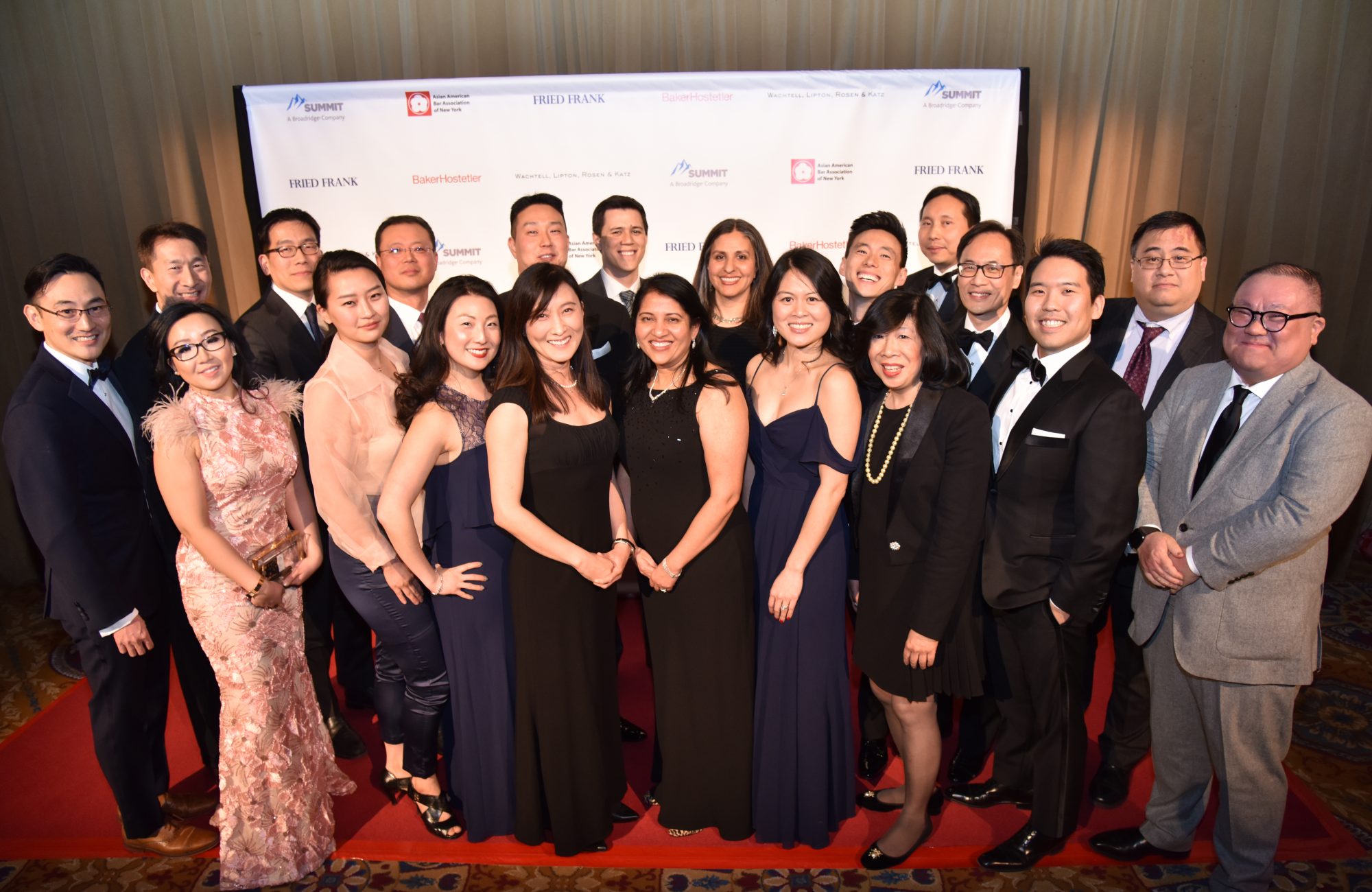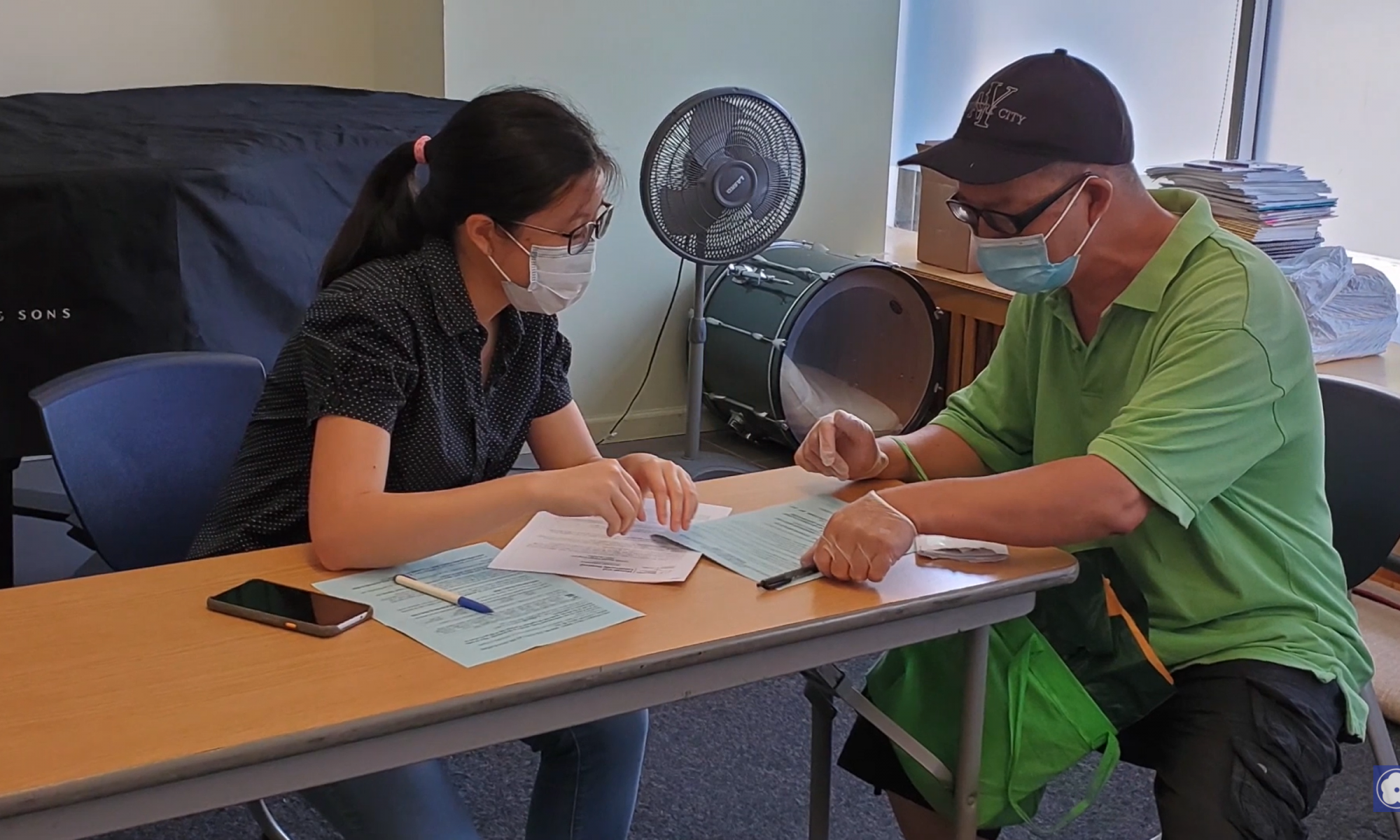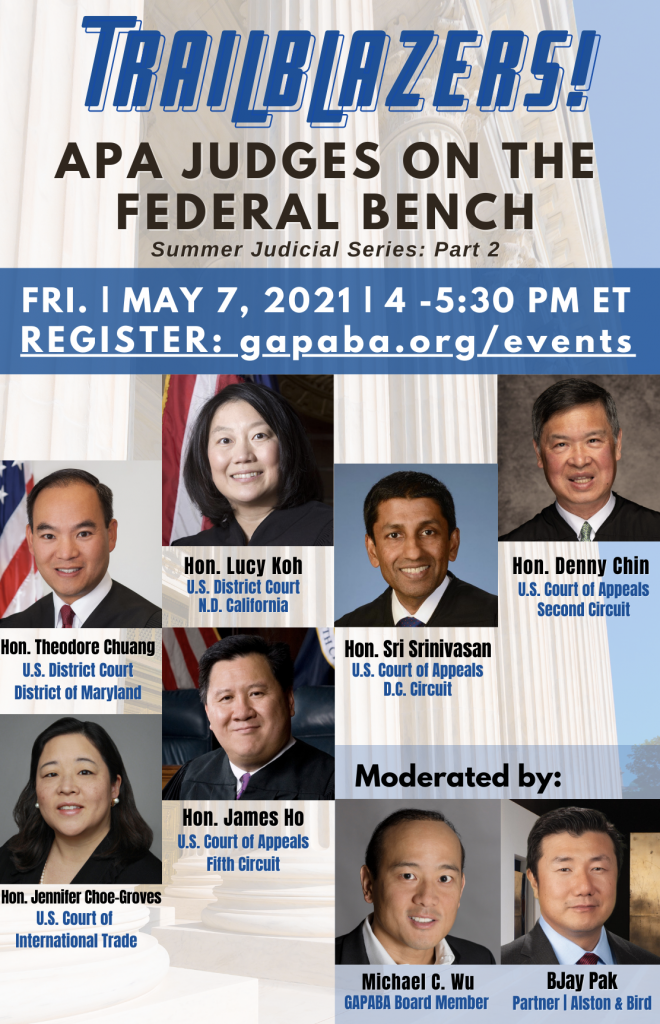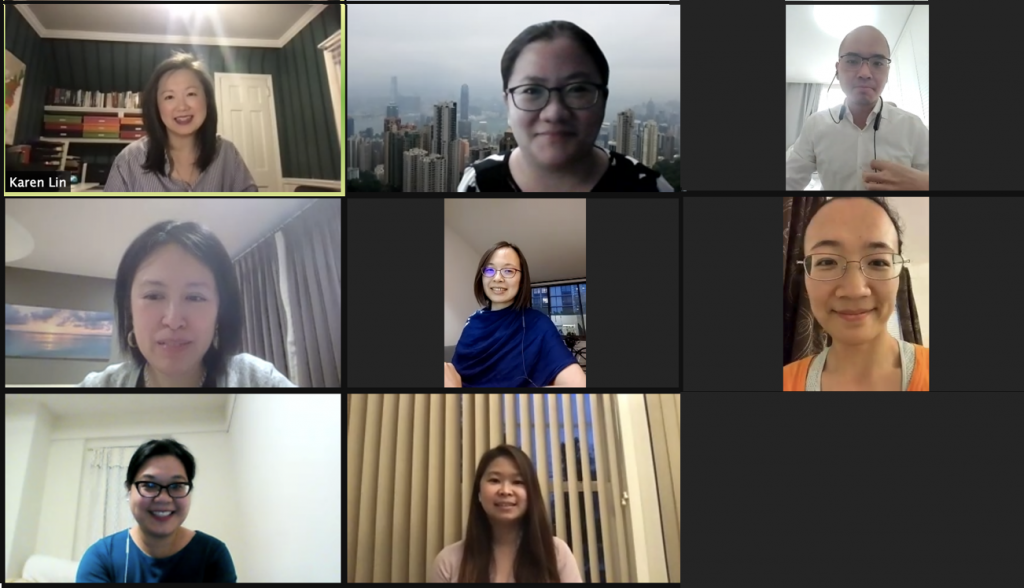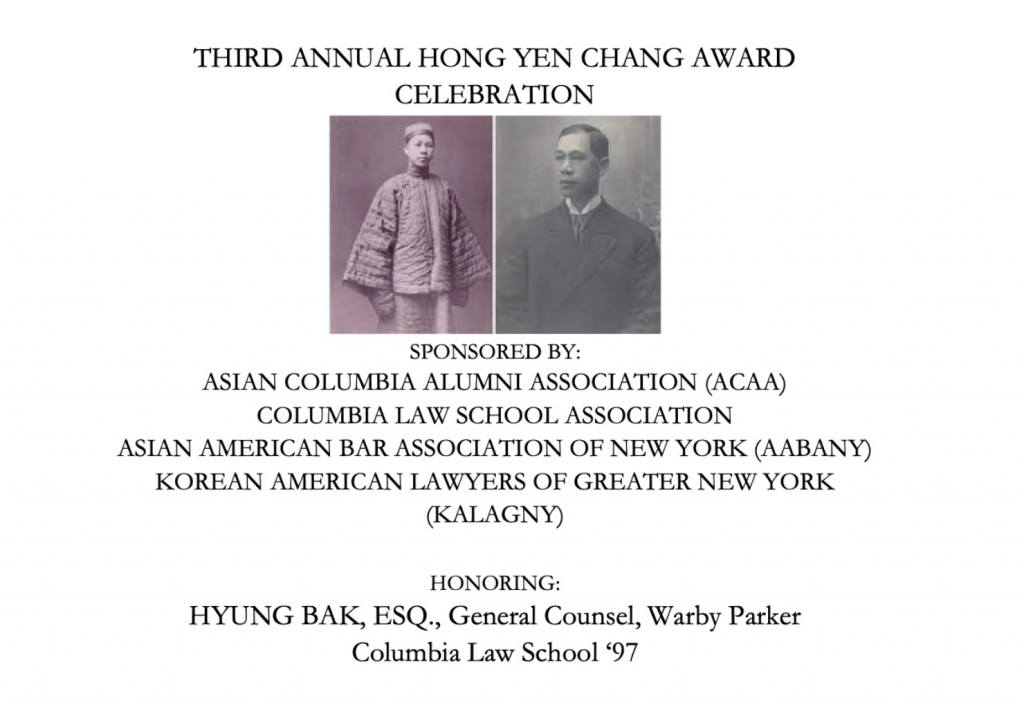
On May 20, the Asian American Bar Association of New York (AABANY), along with the Asian Columbia Alumni Association (ACAA), Columbia Law School Association, and the Korean American Lawyers of Greater New York (KALAGNY), co-sponsored the Third Annual Hong Yen Chang Award Ceremony to honor Hyung Bak, Columbia Law School alumnus and General Counsel at Warby Parker.
The Annual Hong Yen Chang Award Ceremony is held in honor of the first known Chinese-American lawyer, Hong Yen Chang (1860-1926). Chang was, himself, a graduate of Columbia Law School and graduated with honors. He was recommended to bar admission, but was prevented from practicing in New York state because he was not a citizen. He brought suit and the New York Supreme Court ruled in his favor, licensing him to practice in New York in 1888. Chang then moved to California, hoping to be admitted to practice in the state but was rejected in 1890 due to the Chinese Exclusion Act. In 2015, more than a century later, the California Supreme Court admitted Chang to the California Bar. In May 2014, AABANY awarded Chang posthumous membership in the association, in celebration of AAPI Heritage Month. Chang was a trailblazer in the legal profession for all Asian Americans who came after him. The Hong Yen Chang Award is thus presented to Columbia alumni who embody Chang’s pioneering spirit and serve as role models and leaders in both their workplace and their communities.
This year’s award recipient, Hyung Bak, is the first lawyer in his immigrant family. As he was growing up, Hyung was all too aware of being “other” at school and at his workplace. He recounted how he was forced to develop a thick skin and persevere despite the comments and discrimination he faced. Hyung also described how he was often overlooked for networking functions, because of his race and the passive stereotypes associated with it. He also emphasized the importance of “claim[ing] your space at the table” as an Asian American to counteract these stereotypes and be heard. Now, Hyung works as General Counsel at Warby Parker, and is a leader in raising awareness surrounding the discrimination Asian Americans face daily. Hyung has led and participated in a number of different forums at Warby Parker about race and diversity, anti-Asian violence, bystander intervention, and many other topics in order to open up the conversation and create a safe space for individuals to discuss these issues. Hyung, through Warby Parker, has also been involved in initiatives to give back to businesses owned by people of color and to increase diverse representation in a number of different fields.
AABANY congratulates Hyung for this well-deserved honor and acknowledges his role as a leader in the Asian American community.
